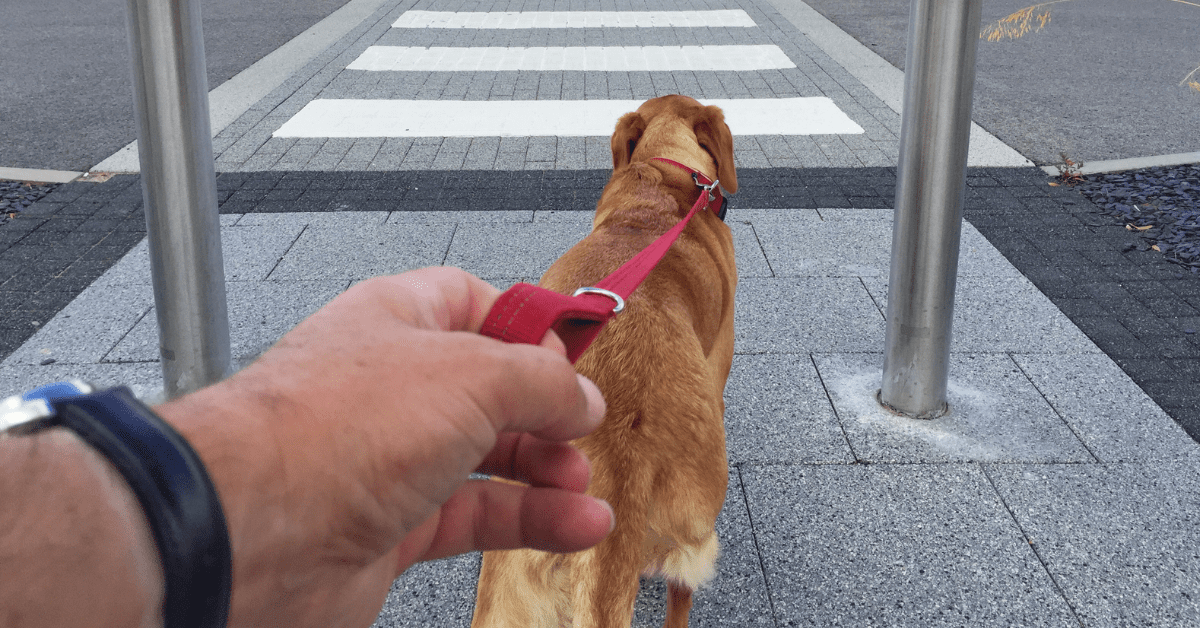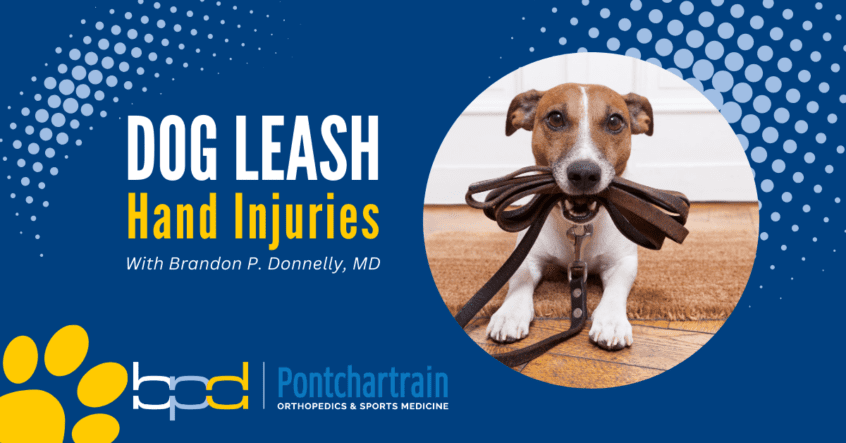
The simple act of walking our furry companions is a cherished routine for many pet owners. However, beneath the joy and companionship lies an unexpected danger – the risk of hand injuries caused by dog leashes. In today’s post, Dr. Brandon P. Donnelly sheds light on the often underestimated hazards of dog leash hand injuries.
“In one year there were more than 16,000 dog leash-related injuries treated in US emergency rooms.”
The Nasty Reality of Dog Leash Injuries
We all love our pets, but they do come with risks to our health, as I discussed in my post about cat bite injuries. Did you know that in one year there were more than 16,000 leash-related injuries treated in US emergency rooms? Injuries resulting from dog leashes tend to be far from trivial. Ranging from minor cuts and abrasions to more severe conditions that may necessitate several months to a year for complete recovery, these injuries are more common than one might think. What's crucial to understand is that the hands, wrists, and upper extremities are particularly vulnerable to the forceful jerking and pulling motions induced by dog leashes. In some cases, hand injuries from a dog leash can even require surgery and skin grafts.
Insights from an Orthopedic Hand Specialist
As a hand specialist, I have a hands-on perspective on the specific injuries that can occur when using dog leashes. These leash-related injuries often manifest in the form of sprains, strains, fractures, and dislocations. Moreover, the repetitive trauma inflicted by leash use can lead to chronic conditions such as tendinitis and carpal tunnel syndrome. The hands, being intricately connected to various muscle groups and joints, are more susceptible to injury than you might realize.
Mechanics of Leash-Induced Hand Injuries

Preventing Hand Injuries Caused by Dog Leashes
Choose the Right Leash
Proper Grip Technique
Be Mindful of Surroundings
What if the Leash Causes Serious Injury?
With a wide variety of potential hand injuries caused by leashes, it can be difficult to tell when it’s serious enough to see a doctor. That being said, make an appointment with me if:
- You are experiencing substantial pain and noticeable swelling.
- Pressing on the injured area causes sharp pain and discomfort.
- Movement of your wrist, hand, or finger is painful, and you may not have a complete range of motion.
What to do if you’ve been injured
About Dr. Brandon P. Donnelly, MD
 Dr. Brandon P. Donnelly is a board certified hand surgeon with Pontchartrain Orthopedics & Sports Medicine. Dr. Donnelly completed his hand and microsurgery fellowship at the prestigious Philadelphia Hand to Shoulder Center. Dr. Donnelly treats all ages of patients in the greater New Orleans area for hand, wrist, and elbow conditions.
Dr. Brandon P. Donnelly is a board certified hand surgeon with Pontchartrain Orthopedics & Sports Medicine. Dr. Donnelly completed his hand and microsurgery fellowship at the prestigious Philadelphia Hand to Shoulder Center. Dr. Donnelly treats all ages of patients in the greater New Orleans area for hand, wrist, and elbow conditions.
This site is not intended to and does not provide medical advice, professional diagnosis, opinion, treatment or services to you or to any other individual. Through this website and links to other websites, Brandon P. Donnelly, MD provides general information for educational purposes only. The content provided in this website and links, is not a substitute for medical care or treatment. You should not use this information in place of a consultation or the advice of your healthcare provider. Brandon P. Donnelly, MD is not liable or responsible for any advice, course of treatment, diagnosis or any other information, services or product you obtain through this site.

